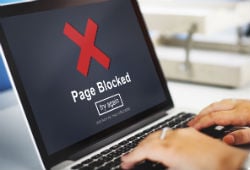For huge numbers of sports fans around the UK and the rest of Europe, football (or soccer as it’s known elsewhere) is the number one spectator sport. As a result, huge sums of money are invested in its development and subsequent broadcasting rights.
In the UK, top tier football is handled by The Premier League, which is currently facing a growing problem. Instead of paying significant monthly subscriptions to broadcasters such as Sky and BT Sport, large numbers of fans are turning to piracy-enabled set-top boxes for their fix.
These devices, often running Kodi with third-party addons, not only provide free football but also enable fans to watch matches at 3pm on Saturdays, a time that no broadcaster is legally allowed to transmit games due to the blackout.
To tackle this threat, The Premier League has just obtained an injunction from Mr Justice Arnold at the High Court which will compel ISPs BT, Sky, TalkTalk and Virgin Media to block unauthorized streams at the football organization’s request.
Content providers have obtained site-blocking injunctions on many previous occasions, but the Premier League’s comments indicate a potentially significant development on a couple of fronts.
Firstly, regular blocking orders usually target entire sites on a permanent basis but this one appears to be somewhat more targeted. The stated aim of the injunction is to block actual streams that are fed to Kodi setups, IPTV boxes, and indeed the Internet overall.
“The Order was granted under Section 97a of the Copyright, Designs and Patents Act, and further demonstrates our intellectual property rights are protected by the law,” a Premier League statement reads.
“This will enable us to target the suppliers of illegal streams to IPTV boxes, and the internet, in a proportionate and precise manner.”
Since the High Court injunction is yet to be published, TorrentFreak asked the Premier League some specific questions about how it will work from a technical standpoint. The information provided was somewhat general, but reading between the lines it seems the football outfit intends to hit content at its source.
Rather than playing site-blocking whac-a-mole at the streaming site level (from where Kodi addons often scrape their content), it appears that the Premier League might be seeking to go further up the ‘content tree’ by targeting the servers that actually originate the pirated content used by sites and services lower down.
The injunction allows the group “to block servers that stream unauthorized Premier League content”, as opposed to the traditional approach of blocking single sites.
“The new block will enable a proportionate and targeted restriction of content that would otherwise have been proliferated to unauthorised websites and IPTV devices,” The Premier League adds.
Two further pieces of potentially interesting pieces of information come via Bloomberg.
Firstly, the publication indicates that Judge Arnold held part of the injunction hearing in private after The Premier League said it related to confidential information. Second, the article states that The Premier League can now block streams “during games.”
Since streams can pop up in unexpected places at any time, it makes sense that The Premier League would seek the ability to react quickly during a game. However, it’s difficult to see how there can be any meaningful legal oversight if the football organization tells the ISPs to instantly block a stream at 3pm on a Saturday, for example.
In the meantime, Sky – which is a Premier League broadcaster and also owns one of the ISPs that will carry out the blocking – welcomed the decision.
“We are pleased the Premier League’s application to crack down on illegal streaming has been granted. Content piracy is theft, and the success of this application is an important step in tackling the issue,” a spokesman said.
“We’ll continue to work with rights holders, government, online market places and content creators to tackle today’s piracy and make people aware of the risks it presents and the damage it causes.”
Once the text of the full injunction is published, we’ll go through the details but at this early stage, we could be witnessing a new blocking strategy for live content streaming in the UK.





